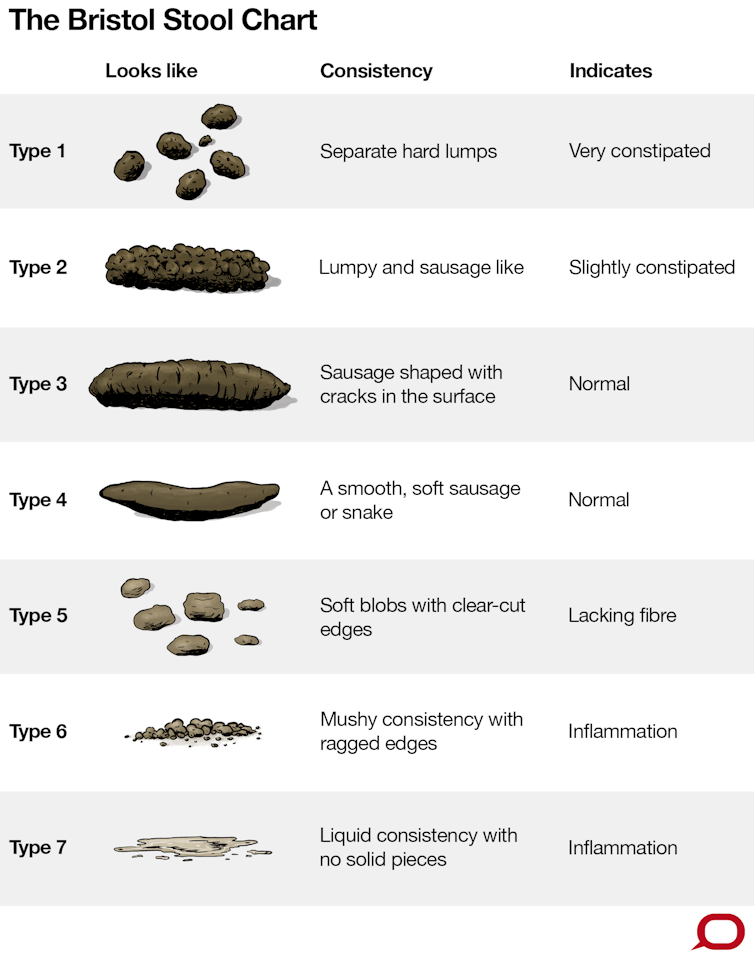Constipation is a common digestive issue that affects people of all ages. While occasional constipation is harmless, persistent or severe symptoms may indicate an underlying health concern.
Constipation refers to an infrequent or difficult passage of stool, often accompanied by straining or a feeling of incomplete bowel movements. It occurs when the stool moves too slowly through the digestive tract, leading to water absorption and hardening of the stool.
While the definition of “normal” bowel movements varies among individuals, experiencing fewer than three bowel movements per week or having dry, hard stools may indicate constipation.
Why Does Constipation Happen?
Multiple factors contribute to the development of constipation:
- Inadequate Fiber Intake: A diet low in fiber can lead to hardening of the stool and difficulty in passing it.
- Insufficient Fluid Intake: Dehydration can make the stool dry and difficult to pass.
- Lack of Physical Activity: Sedentary lifestyles can slow down bowel movements and contribute to constipation.
- Medications: Certain medications, including opioids, antacids, and some antidepressants, can cause constipation as a side effect.
- Underlying Health Conditions: Several medical conditions, such as hypothyroidism, diabetes, irritable bowel syndrome (IBS), and neurological disorders, can lead to chronic constipation.
When to Be Concerned
While occasional constipation is common and can often be resolved with lifestyle modifications, certain symptoms may warrant medical attention. Consult a healthcare professional if you experience:
- Severe Abdominal Pain: Intense, persistent abdominal pain accompanied by bloating and vomiting could indicate a more serious condition, such as a bowel obstruction.
- Blood in Stool: The presence of blood or black, tarry stools may suggest bleeding in the digestive tract, which requires immediate medical evaluation.
- Unexplained Weight Loss: If constipation is accompanied by unexplained weight loss, it may signal an underlying health issue that needs investigation.

Certain medical conditions can predispose individuals to chronic constipation.
Examples include:
Irritable Bowel Syndrome (IBS): A common digestive disorder characterized by recurrent abdominal pain, bloating, and changes in bowel habits, including constipation.
Hypothyroidism: An underactive thyroid gland can slow down the body’s metabolism, including the digestive system, leading to constipation.
Restoring Normal Bowel Function
Regaining a regular pooping schedule may involve lifestyle modifications and treatment options. Here are a few strategies:
- Increase Fiber Intake: Consuming a diet rich in fruits, vegetables, whole grains, and legumes can help soften the stool and promote regular bowel movements.
- Stay Hydrated: Drinking an adequate amount of water and fluids can prevent dehydration and maintain bowel regularity.
- Regular Exercise: Engaging in physical activity, such as walking, jogging, or yoga, stimulates the muscles in the digestive tract, aiding in bowel movement.
- Medication and Supplements: In certain cases, laxatives or stool softeners may be recommended for short-term use to alleviate constipation. Always consult a healthcare professional before using any medications.

Preventing Constipation
Prevention is key in maintaining a healthy digestive system and preventing constipation. Consider these tips:
- Maintain a Balanced Diet: Ensure your meals include ample fiber-rich foods and limit processed foods that can contribute to constipation.
- Stay Active: Regular exercise promotes overall bowel health and helps regulate bowel movements.
- Manage Stress: High levels of stress can affect digestion. Incorporate stress-reducing techniques, such as meditation or deep breathing, into your routine.
- Establish a Routine: Consistency in meal times and bathroom habits can help train your body to establish a regular bowel schedule.
Occasional constipation is typically a temporary inconvenience, persistent or severe symptoms may indicate an underlying condition that requires medical attention.
Awareness of red flag symptoms and seeking appropriate care are crucial for maintaining good digestive health.
Maintain a fiber-rich diet, stay hydrated, engage in regular physical activity, and manage to promote regular bowel movements and prevent constipation.


